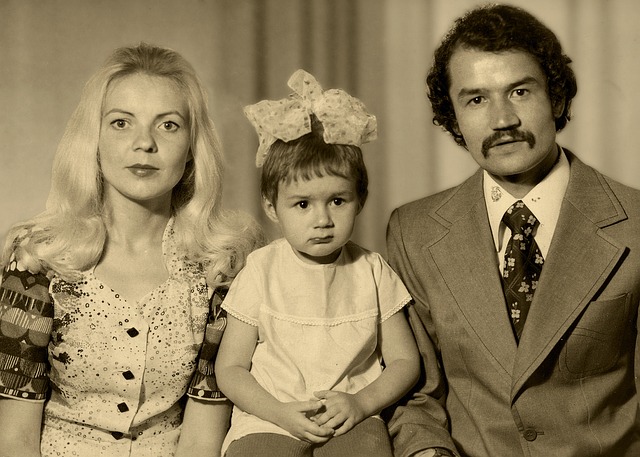Establishing paternity and legal parentage is paramount for protecting parental rights and securing stable family dynamics. A paternity lawyer guides individuals through the process of paternity testing to confirm genetic connections, crucial in resolving disputes related to father's rights or when a parent seeks legal guardianship. Adhering to jurisdiction-specific laws, this process ensures children's best interests are met, facilitates familial bonds, and offers peace of mind. Specialized attorneys navigate complex paternity disputes, advocating for fair outcomes regarding legal parentage and parental rights, especially in cases involving unwed parents or assisted reproduction.
In today’s complex family dynamics, securing parental rights and responsibilities is more crucial than ever. Understanding the foundational concepts of paternity and legal parentage is essential for protecting father’s rights and ensuring a stable environment for all involved. Paternity testing plays a pivotal role in establishing biological parentage, serving as a key component in navigating paternity disputes. This article explores these aspects through the lens of legal strategies, emphasizing the importance of a dedicated paternity lawyer in securing and enforcing parental rights. Key topics include understanding paternity laws, the significance of paternity acknowledgment, and managing paternity claims effectively.
- Understanding Paternity and Legal Parentage: The Foundation of Parental Rights
- The Role of Paternity Testing in Establishing Biological Parentage
- Navigating Paternity Disputes: Protecting Father's Rights and Parental Responsibilities
- Legal Strategies for Securing and Enforcing Parental Rights: The Importance of a Paternity Attorney
Understanding Paternity and Legal Parentage: The Foundation of Parental Rights

Understanding Paternity and Legal Parentage: The Foundation of Parental Rights
Establishing paternity is a crucial step in ensuring a child’s legal parentage, which in turn strengthens and protects parental rights. A paternity lawyer or expert can guide individuals through the process of paternity testing to confirm biological parentage. This is particularly important when there are disputes regarding father’s rights or when a parent seeks to establish their claim as the legal guardian. Paternity acknowledgment plays a vital role in fostering stable family relationships and safeguarding the rights of all involved, especially children.
Paternity laws vary across jurisdictions but generally outline the procedures for establishing legal parentage and determining parental responsibilities. A paternity attorney can assist clients in navigating these complex legal frameworks, ensuring their rights are protected and that they have a solid understanding of their role as a parent. Whether it’s through voluntary acknowledgment or court-ordered testing, confirming biological parentage is the cornerstone of securing parental rights and responsibilities.
The Role of Paternity Testing in Establishing Biological Parentage

Establishing biological parentage is a crucial step in securing parental rights and responsibilities. Paternity testing plays a pivotal role in this process by providing definitive evidence of an individual’s genetic relationship to a child. This is especially important in paternity disputes where the legal parentage needs to be clearly established. A paternity lawyer can guide parents through this process, ensuring their rights are protected and the legal framework adheres to relevant paternity laws.
Accurate paternity testing has advanced significantly, offering various methods like DNA analysis, which can provide a high level of certainty regarding biological parentage. This scientific approach reduces the potential for disputes and allows both parents to have peace of mind. Moreover, it enables children to understand their family heritage and connect with their genetic roots. In cases of paternity acknowledgment or claims, having conclusive evidence through a paternity test is indispensable for legal proceedings and establishing parental rights.
Navigating Paternity Disputes: Protecting Father's Rights and Parental Responsibilities

Navigating complex paternity disputes is a delicate matter that requires expert legal guidance to protect a father’s rights and ensure his parental responsibilities are recognized. When parentage is in question, paternity testing plays a crucial role in establishing biological parentage. A paternity lawyer specializing in these matters can guide parents through the legal process, ensuring their rights are protected throughout.
Early acknowledgment of paternity is essential for fostering strong familial bonds and providing a stable environment for children. Paternity claims and disputes often arise due to various reasons, including unwed parents or when a child is conceived through assisted reproductive technologies. A dedicated paternity attorney can assist in navigating these challenges, ensuring fair outcomes in terms of legal parentage and parental rights.
Legal Strategies for Securing and Enforcing Parental Rights: The Importance of a Paternity Attorney

Establishing and securing parental rights begins with understanding your state’s paternity laws. A paternity lawyer specializes in navigating these legal frameworks to ensure both the father’s rights and the child’s best interests are protected. They can assist in establishing legal parentage through paternity testing, which provides definitive evidence of biological parentage. This is crucial in cases where a child is born out of wedlock or when a paternity dispute arises.
A paternity attorney plays a vital role in enforcing parental rights by drafting and filing necessary documents, representing the father during court proceedings, and advocating for joint custody or visitation rights. They can also guide fathers through the process of obtaining paternity acknowledgment or making a paternity claim to formally recognize their parental status. This ensures the father’s involvement in raising the child and provides stability for the family unit.
Securing parental rights and responsibilities is a complex process that demands understanding of both paternity and legal parentage. Paternity testing plays a crucial role in establishing biological parentage, which forms the foundation for navigating paternity disputes. In such scenarios, consulting a paternity lawyer becomes essential to protect father’s rights and ensure the enforcement of parental responsibilities. By leveraging the expertise of legal professionals specializing in paternity laws, parents can safeguard their rights and foster healthy relationships with their children.
